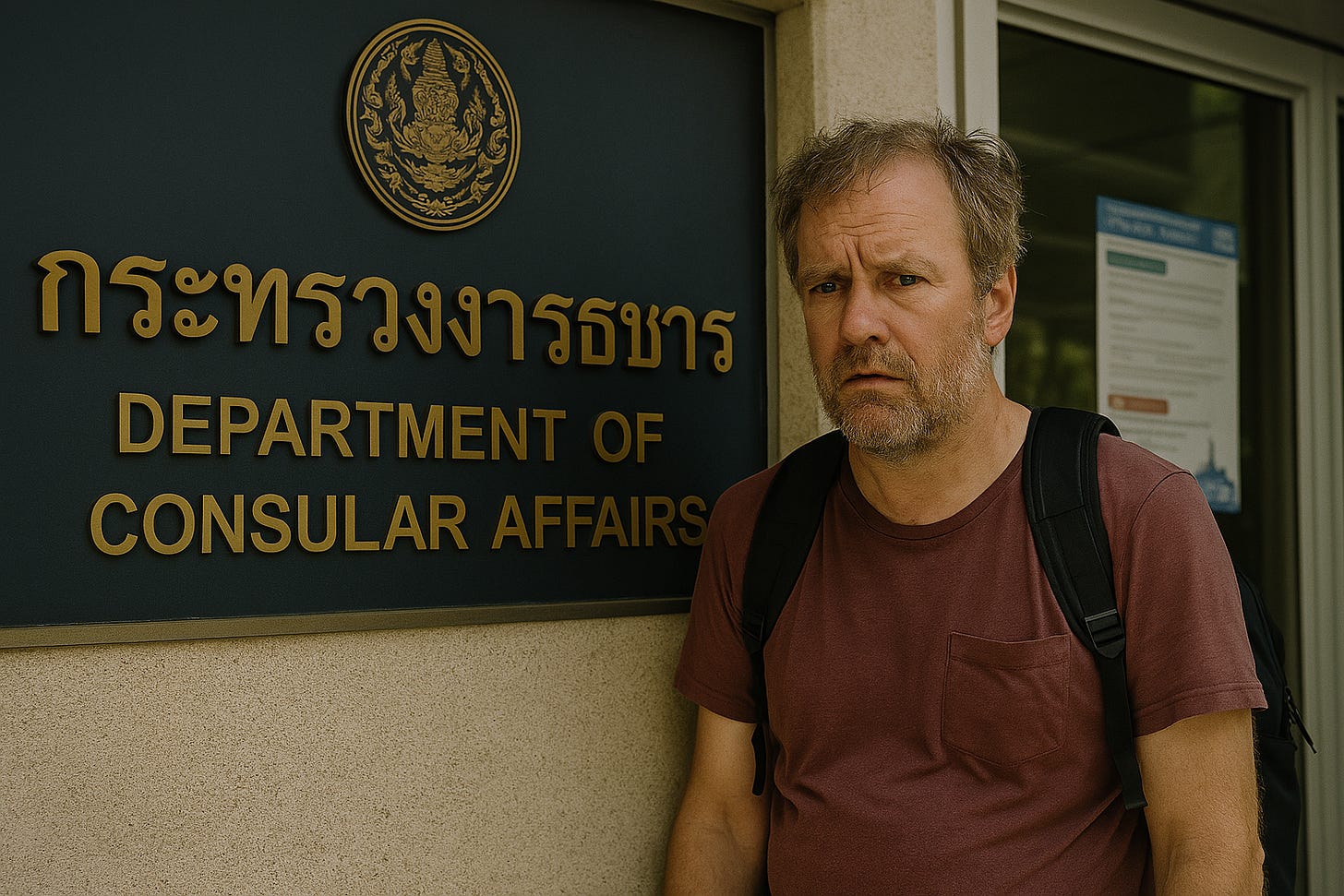With New Trump Tariffs in Place, Thai Government May Shift to “Finders Keepers” Policy on Forgotten Foreigners
By KIP DUNGWORTH, STAFF REPORTER
BANGKOK, THAILAND — As the U.S. reintroduces sweeping tariffs under a freshly re-elected President Trump, Thailand is quietly reassessing its approach to one of its most persistent imports: stranded Westerners with expired visas and no forwarding address.
A leaked draft memo from the Ministry of Foreign Affairs, circulated internally last week, outlines a proposed shift in consular cooperation protocols. The document, titled “Unclaimed Nationals and Long-Term Hospitality Solutions,” suggests the government may soon adopt what one civil servant reportedly called a “Finders Keepers” policy.

The change would affect foreigners whose embassies either refuse or delay repatriation assistance — a growing issue as Western nations tighten purse strings in the wake of global economic pressure and new trade restrictions from Washington.
The Trump administration’s tariff package, which affects all Southeast Asian nations with punitive duties ranging from 10% to 49%, has left several regional economies looking for ways to “rebalance the ledger.” Thailand, it seems, has found at least one.
“These guys have been here for years,” said an anonymous immigration official in Samut Prakan. “They eat our food, clog our embassy hotlines, and then start GoFundMes when their crypto portfolios tank. If the West won’t take them back, why should we keep chasing them down?”
Currently, overstaying foreigners are subject to fines, blacklisting and detention — though in practice, enforcement varies between polite reminders and full-blown raids, depending on which district you’re in and how annoying you’ve been online.
Under the proposed policy, long-term overstayers whose embassies fail to retrieve them within 90 days may be reclassified as "culturally absorbed dependents." They would be granted limited rights to remain, but restricted to certain zones — likely budget hostels, visa agent offices, and whichever McDonald’s still allows sleeping.
Expat reaction has been muted, possibly because no one reads official memos until they’re already being deported.
“I guess I live here now,” said Dave Mendes, a former ESL teacher from Newcastle who’s been overstaying since 2020. “Does this mean I can get on the national health scheme? My left knee clicks when it rains.”
Officials stress the policy is still under review and would not apply to “productive foreign contributors,” a phrase loosely defined as “anyone with a tax ID, a Thai spouse, or the ability to leave when asked.”
According to the draft proposal, culturally absorbed dependents may be enrolled in a new pilot program tentatively titled Farang Forward, which aims to “extract residual utility from lingering foreigners through light civic duties.” Tasks under consideration include guiding soi dogs across busy intersections, monitoring Facebook groups for disinformation about TM30s, and serving as regional ESL temp staff in provinces where no actual teachers are willing to go.
Officials are also exploring a public-facing “cautionary deployment” strategy, in which long-term overstayers may be stationed at immigration checkpoints and consular offices as passive warnings to others. Outfitted with laminated signs reading “I Ignored My Visa and All I Got Was This Shirt”, participants would be compensated with daily rice and intermittent Wi-Fi.
As of press time, the U.S. Embassy declined to comment, instead directing inquiries to its Facebook page, where the top post remains a 2021 graphic urging Americans to “renew your passport early.”

